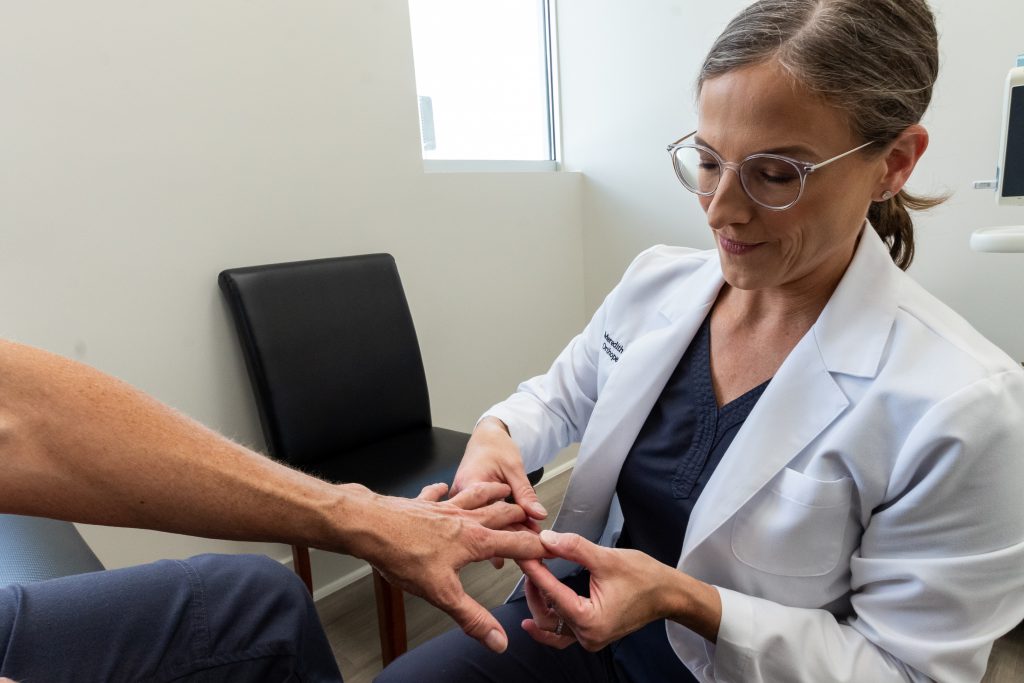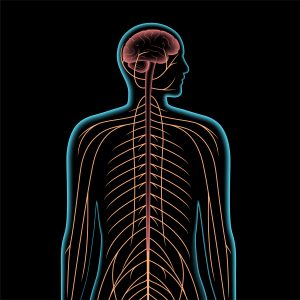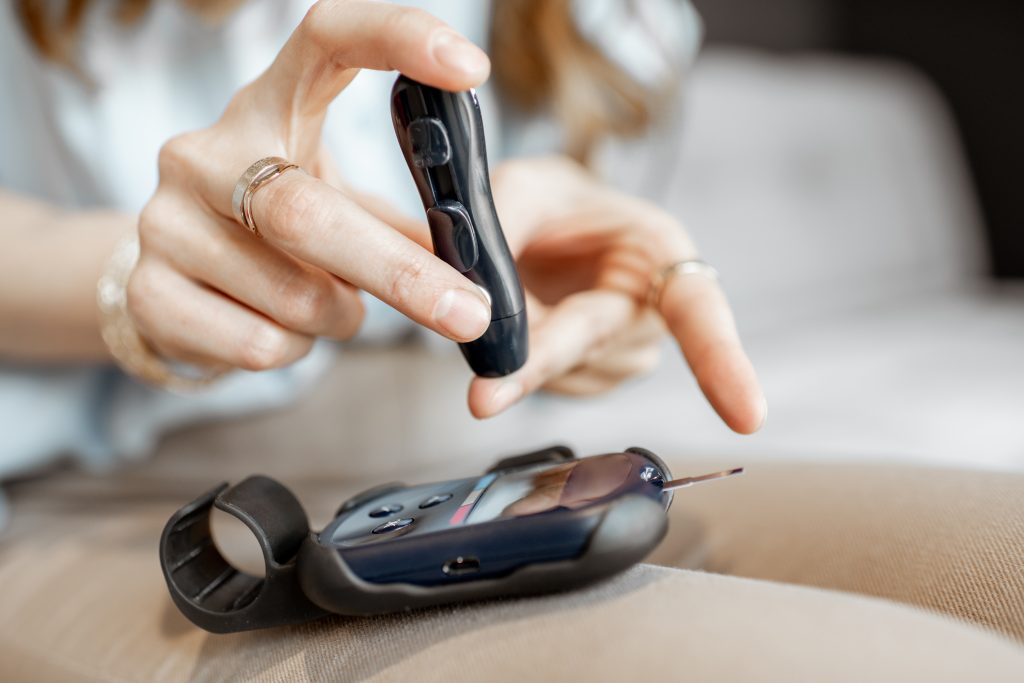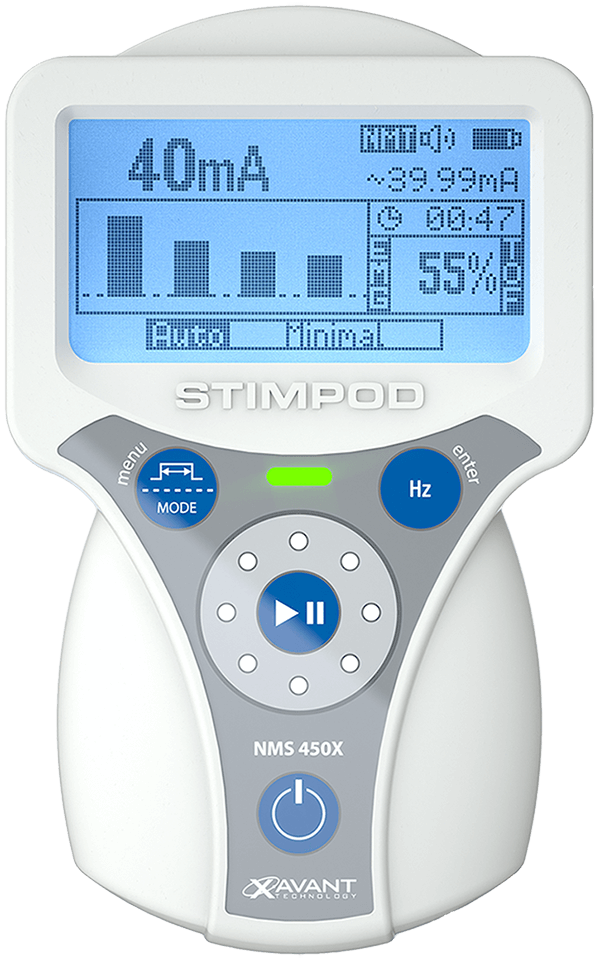How We Treat Nerve Pain In Our Baton Rouge Clinic

Nerve pain, or neuropathic pain, is the result of either an injury, diet, toxins, or health condition that affects your nerves. Nerves throughout your body will send electrical signals to your brain that relay various sensations. The nervous system is bidirectional and the brain will send signals back to the extremities, organs, etc. Your nervous system is broken down into two parts, your central nervous system (the brain and spinal cord) and your peripheral nervous system (nerves outside your central nervous system).

In the case of nerve damage or dysfunction, you may experience varying sensations. This can include numbness, pins and needles, and burning or sharp pains. Your nerves contribute to many bodily functions, including movement, breathing, digestion, the various senses (to include smell, touch, hearing, balance, pain, sight, etc.), and more. Believe it or not, the nervous system is integral to the proper function of the immune system. This is just one example of the wonderful complexity of our human bodies.
Nerve pain can be debilitating and prevent you from living fully. That’s why, at Warner Orthopedics & Wellness, we’re dedicated to relieving neuropathy in our patients.
Common Causes of Nerve Pain
Nerve pain is commonly the result of diabetes, oxidative stress, chronic inflammation, injury, or vitamin deficiencies and other dietary problems.
The leading cause of peripheral neuropathy is diabetes. In this case, insulin resistance can restrict blood flow to the nerves in your hands and feet, resulting in nerve damage and other complications.
Insulin resistance will change the balance needed in glucose metabolism and allow excess glucose to remain in the serum. This then causes a host of problems at a cellular level that result in nerve cells becoming incompetent. Direct damage will result to the nerves from the deposition of advanced glycation end products and toxicity from the sorbitol pathway (an alternative for glucose metabolism). Those with hyperglycemia also tend to have other dietary problems and this makes the nerves even more vulnerable to failure.

Vitamin deficiencies can also contribute to neuropathy. If you’re lacking in vitamin B12 or B1 (thiamine), then you’re also at risk for experiencing nerve related issues. Vitamin B12 is vital for neurological function, DNA production, and the production of red blood cells. Other micronutrients that often cause problems from deficiencies include vitamin D3, magnesium, selenium, PEA, etc.
Oxidative stress is an imbalance of free radicals to available antioxidants within the body. Free radicals can wreak havoc on every cell in your body, including nerve cells. A free radical is an unpaired electron on a molecule. In nature, electrons always seek balance. When there is an unpaired one in the body, it will bind to any other unpaired electron. Sometimes, this leads to extraordinary damage to DNA, proteins, cell walls, mitochondria, and more. Oxidative stress can also lead to chronic inflammation, which can damage nerve cells while contributing to diseases like diabetes. Improving your levels of oxidative stress and inflammation can reduce and prevent pain, so it’s best to keep these in check. Thankfully, you can accomplish this in a number of ways.
Treating Nerve Pain
During your treatment at our clinic, we’ll work to reduce your neuropathy by improving your overall health, tackling nerve pain and damage at its source.
Dietary changes can help lower your blood sugar levels and ease symptoms of diabetes-related neuropathy. You’ll want to focus on a diet that is low in refined grains (lower in nutritional value these are considered “empty” carbs) to reduce blood sugar spikes. Whole grains have healthy fiber and antioxidants. You’ll want to make sure you’re getting an appropriate amount of essential vitamins, like vitamins B1 & B12, as mentioned earlier. Antioxidants can also reduce oxidative stress levels and in turn, inflammation.
However, even with the best diet, it can be difficult to get all the nutrients you need. That’s when supplementation can be especially beneficial. Dr. Warner’s Well Theory products like the Nervous System Multi and Alpha-Lipoic Acid (ALA) can benefit your nerve health and reduce pain. ALA is a powerful antioxidant supplement that can also help control your blood sugar.
Exercise is another natural way to decrease pain. As you exercise, your body produces endorphins and increases blood flow to its peripheral nerves. Exercise can be something as simple as a daily walk, bike ride, yoga, or swimming. Exercise is also a natural way to reduce levels of glucose in the serum, without a reliance on insulin.
If you’re not sure where to start with exercise, or find that exercise is particularly difficult, you may benefit from physical therapy. This may be especially beneficial if your neuropathy is the result of an injury. At Warner Orthopedics & Wellness, our team is highly skilled at treating a variety of conditions. We’ll work with you to develop an individual treatment plan for managing and reducing your pain.

Peripheral stimulator implants can also help those experiencing neuropathy in their hips, knees, limbs, even the lower back. It sends small amounts of electrical current to the nerves causing you pain in order to mask the pain you’re feeling. It’s a minimally-invasive procedure that puts you in control, empowering you to manage your own pain. Peripheral nerve stimulators are very powerful and effective and utilize the gate control theory of pain.
Schedule a consultation with Warner Orthopedics & Wellness today to discuss potential treatment options.






